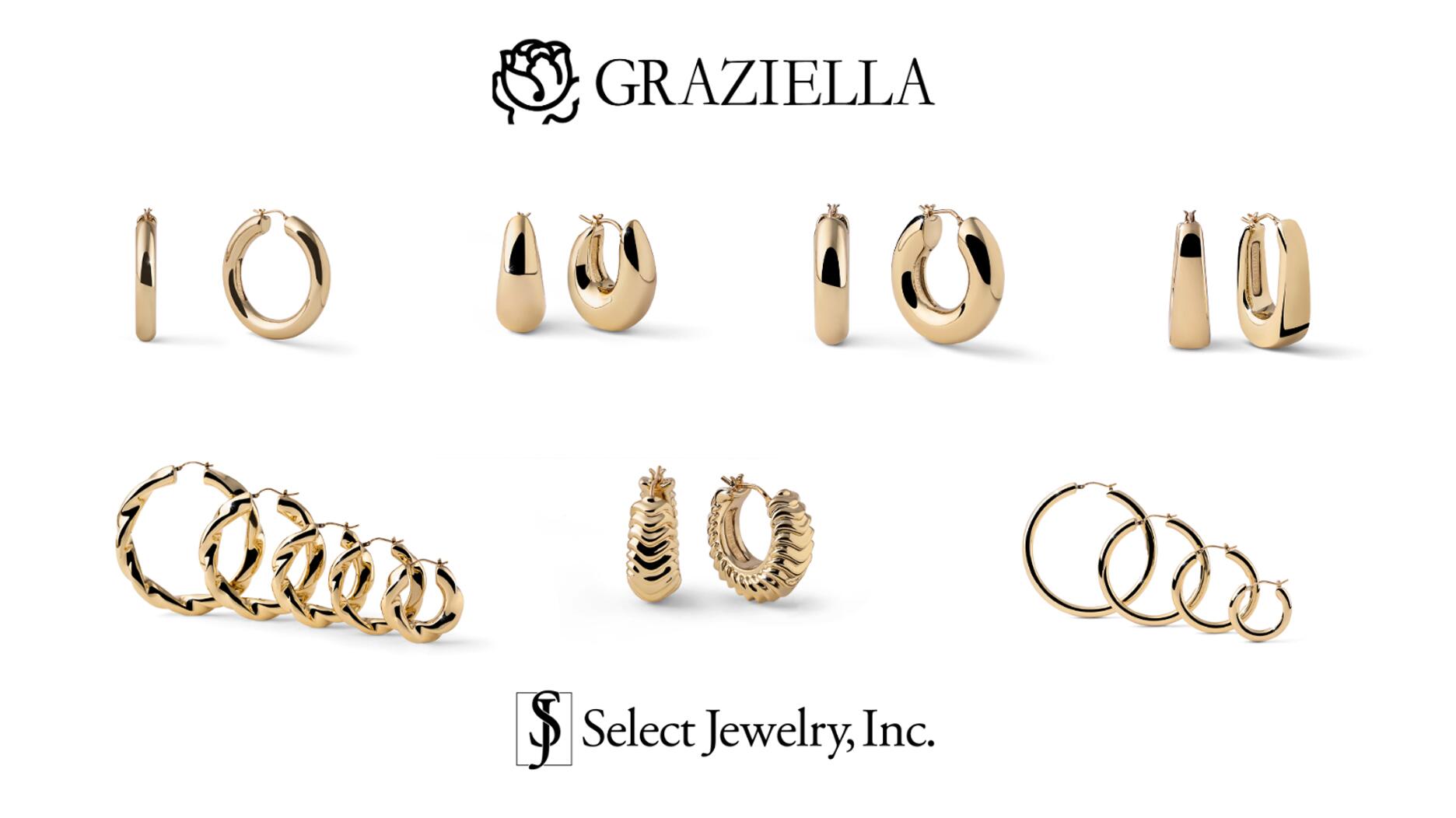We asked a jewelry historian, designer, bridal director, and wedding expert what’s trending in engagement rings. Here’s what they said.
Here’s How Signet Is Reopening Its Stores
Curbside pickup with a password, social distancing in stores, masked employees and more.

Akron, Ohio—Signet Jewelers Ltd. announced Tuesday that it has reopened 1,100 of its 3,000-plus stores, with 80 percent fully open to the public and the remaining 20 percent doing curbside pickup only.
Over the past six weeks, the retailer’s opened the doors of stores in the South and Midwest—Florida, Georgia, North Carolina, Virginia, Ohio and Texas—as well as in Arizona and California.
The states with the highest number of reopened stores are Texas and Florida, with more than 120 Signet-owned banners operating again in both.
All employees are wearing masks, practicing social distancing, and implementing “rigorous new sanitizing protocols.” They also wear gloves when needed.
Health and safety for customers and employees is the retailer’s “priority topic” right now, Bill Luth, the company’s executive vice president of global store operations, said in an interview Wednesday.
Signet initially had employees sign a statement each day verifying they’d taken their temperature and felt ready and willing to work.
Now the company is in the process of delivering contactless thermometers to all stores so managers can take each employee’s temperature.
Customers will see employees regularly cleaning frequently touched surfaces like the counters and door handles, and using alcohol wipes to clean each item before and after the customer tries it on.
Luth said they are using cleaning products listed on the Centers for Disease Control and Prevention’s website.
At first, the massive retailer had its store managers procuring cleaning products locally, and Luth said they had the best luck finding what they needed from “non-traditional” supply sources, places like hardware stores and Tractor Supply stores.
Now, Signet is able to buy these items in the quantity it needs so it is distributing them centrally. “As we sit today, we’ve been able to find it on scale so we don’t have the problems we did a month ago,” Luth said.
The company asks store managers to keep a two-week supply on hand and, if they run low, to procure them locally again.
Customers are not made to wear masks (unless it is required by local law) but employees are and Signet is also trying out face shields, gauging customer perception and the feeling of its team members.
Luth said the company is also testing portable countertop plexiglass screens, 3-x-3 barriers that sales associates can move along the counter as they help a customer.
Employee-only areas, like breakrooms and back offices, are cleaned once a day, while low-touch customer
High-touch customer areas like register PIN pads, iPads, and merchandise are cleaned before and after every use.
And, Luth said, there is signage at every store detailing what the chain is doing to keep its stores clean and safe.
What About Ear Piercing?
Among Signet’s banners is Piercing Pagoda, the chain of mall kiosks that’s been piercing ears since 1969.
Although it represents a small percentage of the retailer’s overall sales, it consistently is one of its strongest performers.
Last year, Piercing Pagoda recorded the highest increase in year-over-year same-store sales of any of Signet’s brick-and-mortar banners. Comps for the chain of kiosks rose 11 percent, topped only by James Allen (12 percent increase).
But, right now, the Pagoda isn’t piercing any ears.
“We’re being really thoughtful about that approach,” Luth said Wednesday. “When we opened Piercing Pagoda, we did not open with piercing services.”
Signet is considering using both masks and face shields and is looking—“I’m saying ‘look’ because we’re not there yet,” he noted—to take customers’ temperature before piercing.
Luth also said the company is currently not taking in any jewelry for repair or watches for battery replacements but will be adding more services in the coming weeks.
Their goal in reopening was to first, make a clean and safe environment, and also not to overwhelm employees who are returning to work, and might be nervous about it, with a full suite of services and a long list of new rules.
“Everyone’s building new muscles. Execution is the key,” Luth said. “How do we make sure every customer’s experience is the same experience over and over?”
The Curbside Experience
Of Signet’s 1,100 stores that are open again, 220 are doing curbside pickup only, an extension of buy online, pick up in store (BOPIS), and something Signet has never had before.
Customers book a time online to come pick up their jewelry during store hours. When booking, they’re given a secret password that they have to recite when they park at the designated curbside location.
An employee greets the customer from a safe distance, confirms the identity via the password, and then places the jewelry bag inside the customer’s vehicle.
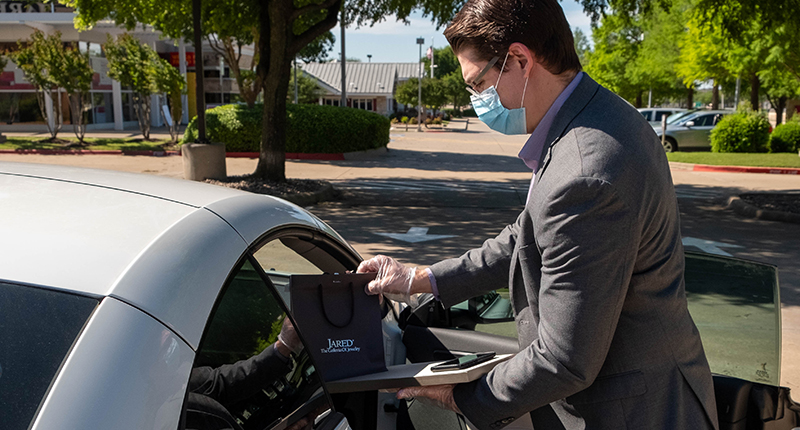
Signet said it plans to expand this service to more stores as they reopen.
Going forward, Luth said he expects curbside pickup will become a “standard” in retail, with the pandemic redefining what customers will expect from brick-and-mortar stores in the same way Uber rewrote the rules for taxis and car services.
He rattles off a list of just a few of the retailers now doing curbside pickup: Walmart, Target, Kroger, Best Buy.
“If we don’t prepare to support that service for our customer, once again jewelry would look like an antiquated arm of retail,” Luth said.
“If you don’t do that, customers look at you like you’re out of it.”
2020 Outlook
Signet CEO Gina Drosos said on the company’s earnings call Tuesday the retailer will have at least 75 percent of its stores open by month’s end. This includes all stores in the U.K., which are set to open June 15.
The retailer, which was forced to close all its stores in mid-March as the coronavirus pandemic swept across North America and Europe, saw same-store sales drop nearly 40 percent in the first quarter as it pivoted to online-only sales.
As of Feb. 1, the Akron, Ohio-based jewelry retailer had 3,208 stores: 2,757 in North America and 451 in the U.K.
Drosos said Tuesday the retailer cut its store count by 13 percent last year, closing stores in D-class malls and almost all regional banners. Luth said only a “handful” of regional brands still exist; the company’s long-term goal is to close them all.
This year, Signet will shutter at least 380 stores. There will be 150 stores in North America and 80 in Europe that simply won’t reopen following the pandemic, and the company forecasts it will have to close another 150 locations.
Luth said the company will monitor customer response at these stores, letting them run through the summer and holidays.
By the end of the fiscal year, Signet’s physical footprint will have shrunk by 20 percent in the past two years.
The Latest

Experts from India weigh in the politics, policies, and market dynamics for diamantaires to monitor in 2026 and beyond.

Beth Gerstein discusses the vibe of the new store, what customers want when fine jewelry shopping today, and the details of “Date Night.”

Every jeweler faces the same challenge: helping customers protect what they love. Here’s the solution designed for today’s jewelry business.

Are arm bands poised to make a comeback? Has red-carpet jewelry become boring? Find out on the second episode of the “My Next Question” podcast.


The Swiss watchmaker is battling declining sales amid a rapid retail expansion, according to a Financial Times report.

The campaign celebrates Giustina Pavanello Rahaminov, the co-founder’s wife and matriarch of the family-owned brand, for her 88th birthday.

With refreshed branding, a new website, updated courses, and a pathway for growth, DCA is dedicated to supporting retail staff development.

Rachel Bennett, a senior jeweler who has been with Borsheims since 2004, earned the award.

After the Supreme Court struck down the IEEPA tariffs, President Trump imposed a 10 percent tax on almost all imports via a different law.

The industry veteran, who was with The Edge Retail Academy for 14 years, joins her husband at the company he founded in 2022.

The vintage signed jewelry retailer chose Miami due to growing client demand in the city and the greater Latin American region.

Former Flight Club executive Jin Lee will bring his experience from the sneaker world to the pre-owned watch marketplace.
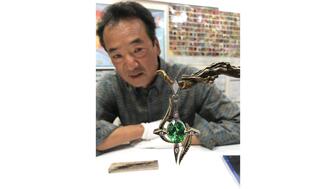
Sakamoto, who died in mid-January following a sudden illness, is remembered for his humility and his masterful, architectural designs.

The April event will feature a new VIP shopping day requiring a special ticket.

Bulgari chose the British-Albanian singer-songwriter for her powerful and enduring voice in contemporary culture, the jeweler said.

In a 6-3 ruling, the court said the president exceeded his authority when imposing sweeping tariffs under IEEPA.

Smith encourages salespeople to ask customers questions that elicit the release of oxytocin, the brain’s “feel-good” chemical.
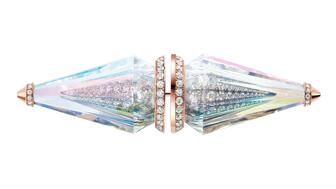
The brooch, our Piece of the Week, shows the chromatic spectrum through a holographic coating on rock crystal.

Raised in an orphanage, Bailey was 18 when she met her husband, Clyde. They opened their North Carolina jewelry store in 1948.

Material Good is celebrating its 10th anniversary as it opens its new store in the Back Bay neighborhood of Boston.
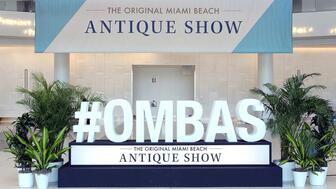
The show will be held March 26-30 at the Miami Beach Convention Center.

The estate of the model, philanthropist, and ex-wife of Johnny Carson has signed statement jewels up for sale at John Moran Auctioneers.
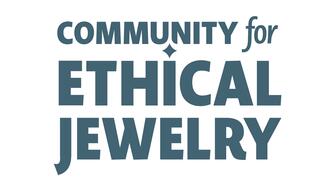
The organization is seeking a new executive director to lead it into its next phase of strategic growth and industry influence.
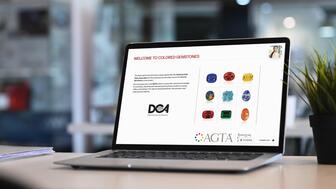
The nonprofit will present a live, two-hour introductory course on building confidence when selling colored gemstones.

Western wear continues to trend in the Year of the Fire Horse and along with it, horse and horseshoe motifs in jewelry.
![A peridot [left] and sapphires from Tanzania from Anza Gems, a wholesaler that partners with artisanal mining communities in East Africa Anza gems](https://uploads.nationaljeweler.com/uploads/cdd3962e9427ff45f69b31e06baf830d.jpg)
Although the market is robust, tariffs and precious metal prices are impacting the industry, Stuart Robertson and Brecken Branstrator said.













